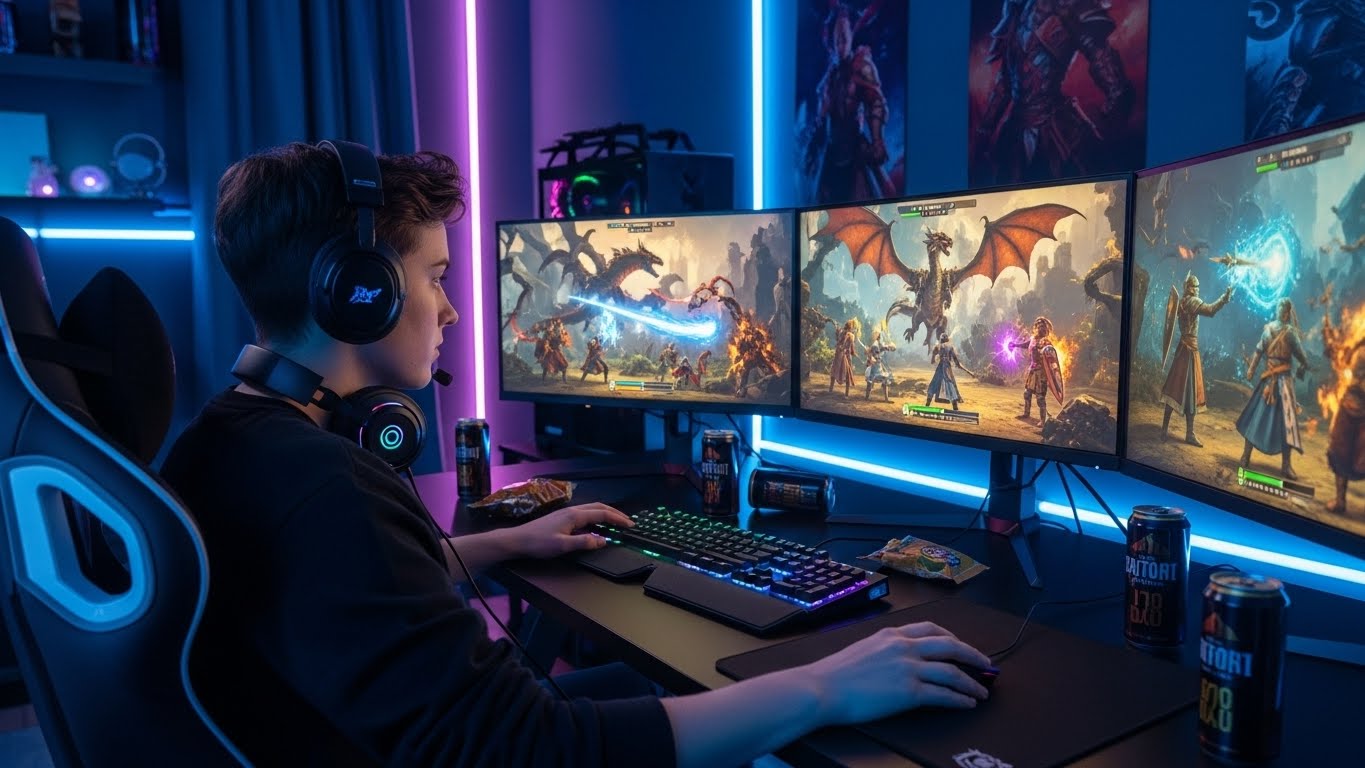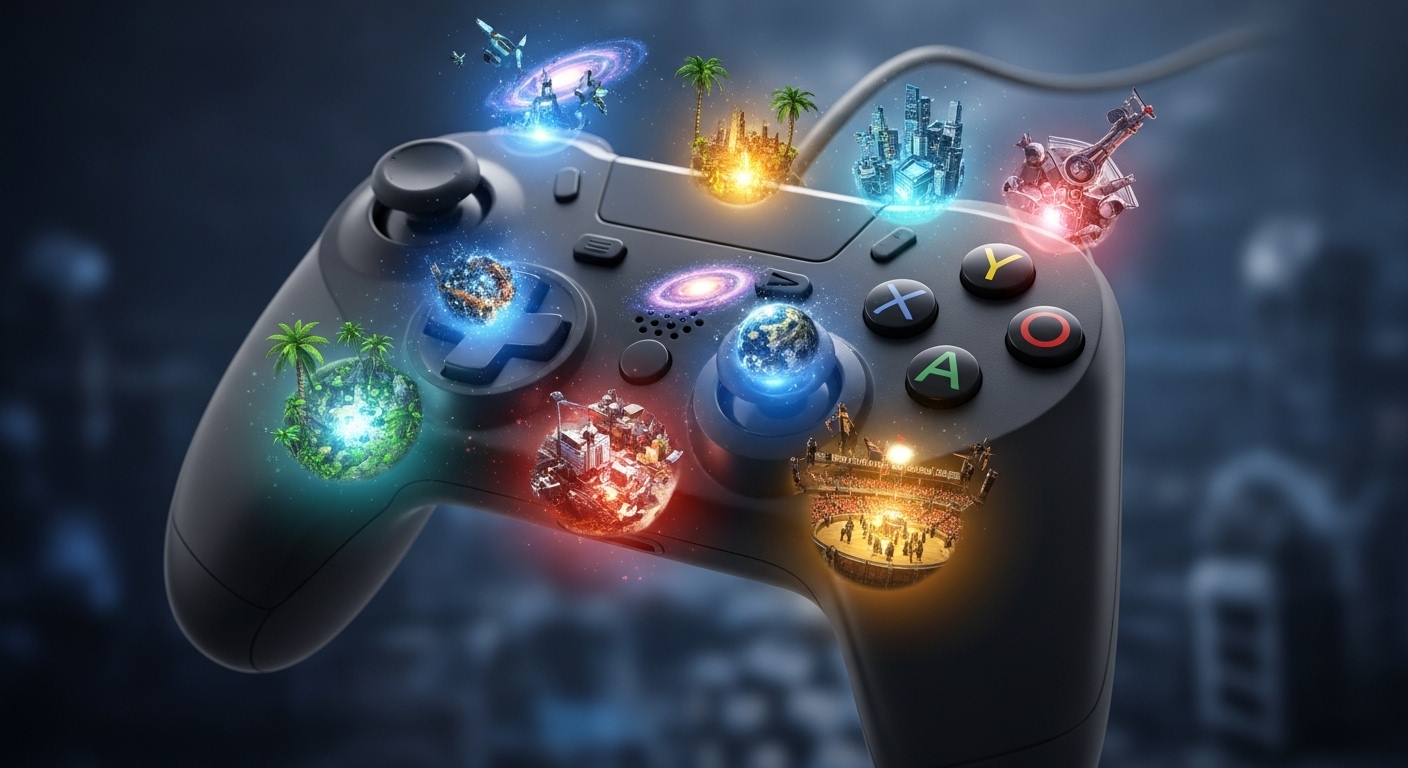Gaming has transformed drastically from a niche hobby to a dominant force in global entertainment. Once seen as a pastime for children or tech enthusiasts, it has now become an industry that captivates millions of people of all ages worldwide. But what exactly propelled gaming into the spotlight as the ultimate form of entertainment? In this post, we’ll explore the journey of gaming’s rise, the elements that make it uniquely engaging, and why it continues to shape entertainment culture today.
The Humble Beginnings of Gaming
The story of gaming begins in the 1950s and 60s with simple computer experiments and mechanical amusements. Early titles like “Pong” and “Space Invaders” introduced interactive fun that was revolutionary for its time. These games were not just about winning or losing but about experiencing something new—a chance to control virtual worlds.
Despite limited graphics and technology, these early games sparked curiosity and laid the groundwork for future innovation. The sense of accomplishment from mastering a game’s mechanics created a strong emotional connection between players and games.
Innovation in Technology Fuels Growth
The advancement of hardware and software dramatically expanded what gaming could offer. With each generation of consoles and PCs, graphics improved, worlds became more immersive, and storytelling grew richer. The shift from 8-bit to 3D environments allowed players to explore vast digital landscapes and engage with characters in new ways.
Technology also enabled multiplayer gaming, connecting players locally and eventually globally. This shift turned gaming into a social experience, where competition and cooperation elevated the excitement. Online platforms grew, allowing millions to play together, fostering communities and rivalries.
Storytelling and Immersion Redefine Entertainment
Gaming’s unique power lies in its ability to blend storytelling, interactivity, and immersion. Unlike movies or books, games let players influence the outcome, making each experience personal and dynamic.
Narrative-driven games provide rich storylines that evoke emotion and curiosity. Players don’t just watch stories unfold; they live them. This level of engagement heightens emotional investment and creates memorable moments that keep players coming back.
The Social Side of Gaming
Modern gaming is deeply social. Multiplayer games bring people together regardless of geography, language, or background. Whether teaming up in cooperative quests or competing in intense matches, players build friendships, share strategies, and celebrate victories.
Social media and streaming platforms amplify this effect, creating communities that revolve around gaming culture. Watching skilled players, sharing highlights, and discussing strategies enrich the experience beyond the game itself.
Accessibility and Variety Attract All Audiences
One of gaming’s strengths is its accessibility and diversity. From casual mobile games to complex esports titles, there is something for everyone. This inclusivity attracts people of all ages, interests, and skill levels.
Games have also become more accessible through free-to-play models, cloud gaming, and cross-platform play. These innovations remove barriers and invite more players into the fold.
Gaming as a Career and Culture
The rise of professional gaming and content creation has legitimized gaming as a career. Esports tournaments now fill arenas with thousands of fans, and popular streamers draw millions of viewers online.
This cultural shift has elevated gaming from simple entertainment to a lifestyle. It influences fashion, music, and social trends, embedding itself in mainstream culture.
The Future of Gaming Entertainment
As technology continues to evolve, so does the potential of gaming. Virtual reality, augmented reality, and artificial intelligence promise even more immersive and personalized experiences. The integration of gaming with other media forms, like movies and music, will blur entertainment boundaries further.
Gaming’s ability to innovate and adapt ensures it will remain at the forefront of entertainment for years to come.
Conclusion: Why Gaming Stands Apart
Gaming’s rise to becoming the ultimate entertainment is no accident. It combines creativity, technology, social interaction, and personal engagement in ways no other medium can match. Its ongoing evolution continues to captivate audiences worldwide, proving that gaming is not just a pastime—it is a powerful cultural phenomenon that shapes how we play, connect, and enjoy stories in the modern era.



